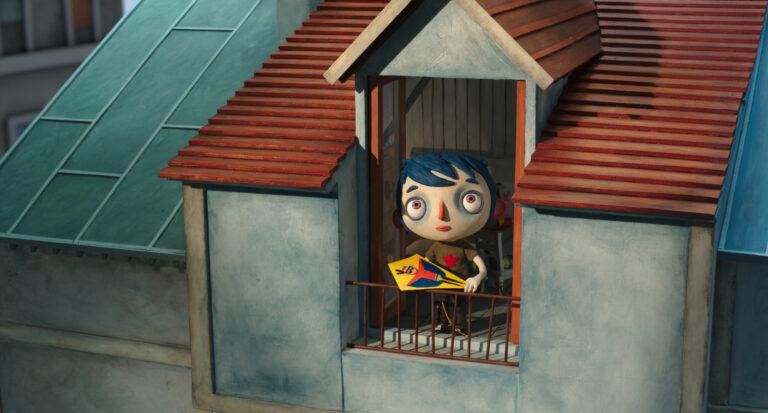A unique film whose premise suggests a romance, but its content and feeling are closer to a social commentary on the disparities of class and gender in India. An incredible slow-burner, the film is built more on atmosphere and the increasing tension between the two leads than it is on dialogue. However, when the protagonist Ratna (Tillotama Shome) at last shares a piece of her mind it carries more punch. The impact and realisation of her circumstances hitting the idealistically romantic Ashwin (Vivek Gomber), that maybe love isn’t enough.
Sir is a masterclass in acting with Tillotama Shome delivering more feeling in her looks, pauses, and curt replies than could be said with an essay on life, and with it telling the harshness and reality of her character’s world, and the lives of those who serve others. But Shome’s character (Ratna) also acknowledges, as we do through watching the film, that the social restrictions that bind her also have their hold on those in wealthier circuits, but in a different way.
Shome portrays a young widow who works as a domestic servant to a young bachelor, Ashwin; a man who’s recently been heartbroken after discovering his fiancé’s infidelity, and with it the realisation that he didn’t really love her. Ratna and Ashwin are therefore two lonely souls that over time, and in close quarters, are drawn to one another – in small measures. But their larger attraction lies in understanding each other without the social boundaries that restrict them – the apartment being their own little bubble from the world. But could they exist outside of it?
In large the film explores Ratna’s dreams versus her reality; providing for her sister to have the education she missed out on, and as such living her life through her. Ratna’s existence being restricted, watched, and governed in line with village’s rules on widows. She even has to hide the fact she wears bangles in the city – something the villagers say widows cannot do. Originating from a hard-working family in the village, Ratna feels far removed from the luxury of her boss and city life. She might love him, but feels the distance in their social standing and the critique that would come from both.
Although curtailed by traditional viewpoints, Sir also shows a degree of respect to it, and that despite its push against modern-day changes, some restrictions are being chipped away; with Ratna being allowed to work, despite being a widow, although this comes with a cost.
Expanding its focus, the film also looks at the pressure placed on those in wealthier circles, with Ashwin having returned home, following his brother’s death, to fulfil his duty as a son; running both the family business and living a certain way of life that includes a suitable marriage. However, the details of this and the pressure involved are never fully explored, with Sir returning instead to look at the differences between Ashwin and Ratna.
The differences between the two leads is as much to do with wealth, family and gender as anything else. For Ratna the film shows how she is summoned back to work, has to ask permission for her interests and career pursuits, lives in a tiny room in a luxurious flat, while Ashwin thinks little of money, can go where he wants and pursue various interests. But it also looks at the similarities between them; they’re both fulfilling a needed and expected role while their dream jobs are put aside, and yet, are still empathetic and hopeful. Ratna is perhaps the more hopeful of the two in that she’s striving to achieve her dream (being a tailor), while Ashwin has left his dream behind. But in watching Ratna chase after her dream, you can see Ashwin being visibly lifted out of his morose and pouting stage, to a realisation that maybe what he feels for her is what was missing with his fiancé.
But before anything happens, they’re each reminded – as we are – of the differences in social standing; the retelling of a maid being abused; by friends and family treating Ratna as an object to be discussed over; and in Ashwin’s visit to a work camp where he sees a temporary shanty-town built in the shadows of a tower block – built for the rich.
Even the way they hold themselves is different, with Ratna walking meekly and quietly within the house, and shrinking her presence whenever Ashwin and his guests are present, while he in turns walks around with his head high and with no hesitation – even entering her room while she’s away. But as a slow friendship develops between employee and employer, from the stretch of saying more than ‘yes sir, no sir’ and his requests of chores, to sentences, brief personal insights, small talk, compliments, to a sudden tension, where Ratna smiles at the thought of Ashwin coming home, while her presence when absent from the flat is greatly missed by him. A growing confidence being instilled within Ratna, and in turn Ashwin.
Sir might be the longest build-up in cinematic history, but it reflects a realistic time-frame of changing relationships, far more than the romantically-picturesque movies that dominate with quick declarations of love and happy endings. It also highlights a set of rules within society, ones that are innately followed and never to be questioned, with Ratna feeling more of the distance between their status, while Ashwin acts out the anguish and stupidity that these viewpoints and “rules” exist. Although there’s a brief point in highlighting how much harder it is for a female – such as the commentary, judgement and damage that would befall Ratna, and could result in a further tightening in restrictions, while Ashwin would face only social criticism.
Overall, the film provides great insight into village vs city life (tradition vs modern) and the class divide, and though it would have been interesting to see a deeper exploration of the former, it still felt impactful, and painted enough of a picture to understand Ratna’s position. The story of Sir might not be of an epic sweeping romance, being more understated and subtle, but there’s an unspoken understanding between the characters that’s just implicit.
It would be interesting to see a similar film with a reversal of gender roles, and thereby furthering the differences between gender and class, but this film provides more than a basis. And with it causing the audience to pause and reflect on the differences that exist; wealth, poverty, modern and tradition, but also our commonalities and dreams.
Director & Writer: Rohena Gera











